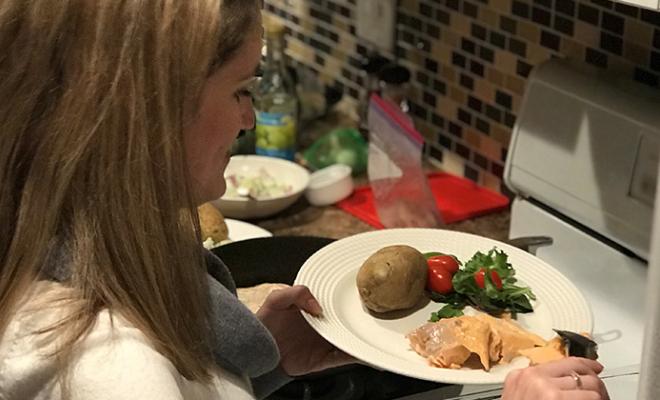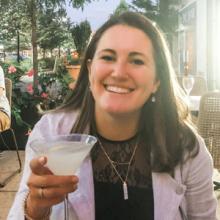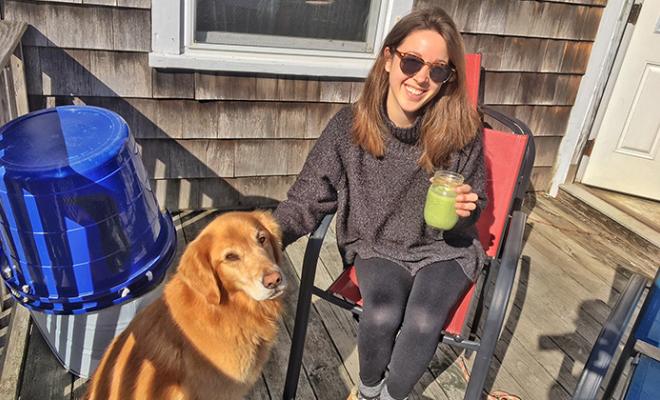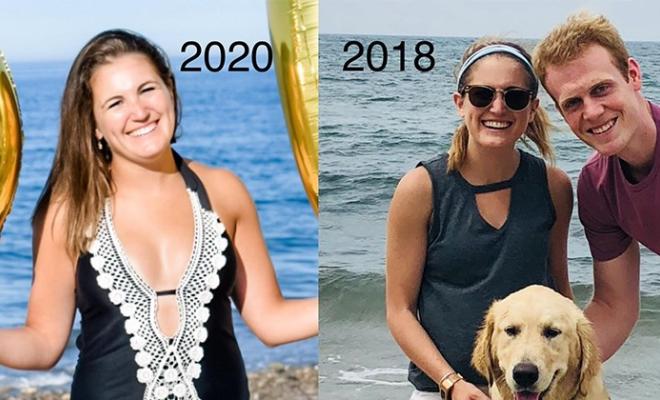Growing up with cystic fibrosis, I was always told to keep my weight up, which meant I ate whatever I could -- at all costs -- to keep me in a normal range. This meant I loved McDonald's Chicken McNuggets and anything with cheese on it and scoffed at things that were too healthy, too organic, or too boring. Let's put it this way: I was never the person who ordered a salad at lunch when the rest of her friends did so.
But recently, I embarked on a journey to change the way I eat to experience firsthand whether eating healthy food would actually make me feel better. After discussing with my CF care team, I went on a 30-day food elimination diet. I stopped eating certain foods to see if I could reduce inflammation in my body. I didn't just stop eating everything I loved for a month. I had to systematically re-introduce “less healthy” things to see how I felt.
In November, I gave up gluten, grains, legumes, dairy, alcohol, added sugar, and processed foods in favor of delicious real food like fruits, vegetables, and meat. The results I experienced were amazing. I had energy, felt less wheezy and congested, and was able to get out of bed when my alarm went off. I no longer felt the need to nap come 2 p.m., and my head was clearer. I was more focused, and my mood improved. When I reintroduced the less healthy foods, I found that gluten and soy made me feel like I had just rolled around in cat hair; dairy made me bloated and phlegmy; and added sugar just made me tired and foggy.
Now, after finishing my second round of this diet, to give myself a reset after gorging on all the things that make my lungs feel sad, I thought it would be helpful to share what I learned with my fellow “CFers:”
- Get clear on your why. Although food elimination diets are often mistaken as a weight-loss diet, it is just a short-term change, to figure out how your body responds to the foods you eat. When I first embarked on my food elimination journey, plenty of well-meaning people looked at all 100 pounds of me as if I had seven heads and said, “But you don't need to lose weight.” From the very beginning, I had my story straight. “I'm doing this to see how my body responds to eating better food. I've had really low energy, and my lungs have been feeling really inflamed lately, so this is for my health. It is not to lose weight."
- Talk to your CF dietitian. Any time you are considering making changes to your diet, take advantage of the expertise of the dietitian on your care team and go over the details before you start. Although the program suggested recipes, my care team encouraged me to keep up my calorie count and monitor my weight. If you are someone who has a problem keeping weight on or are dealing with things like CF-related diabetes (CFRD), your dietitian may recommend supplements to take or may want to monitor you more closely.
- Go high calorie. Doing a food elimination diet actually helped me to rediscover more of the good-for-you high-calorie snacks like cashews, avocado, and almond and sunflower butters, and high-calorie ingredients like coconut milk, coconut oil, and homemade mayonnaise. Planning ahead and bringing high-calorie snacks along when I know I may be in a place where there are “off-plan” foods really helped me to stick with it and keep my weight stable. My favorite high-calorie boost is a smoothie with a full avocado, three eggs, a full banana, a can of organic coconut milk, and a spoonful of coconut oil and almond butter.
- Plan your meals. With CF, sometimes it is hard to find the energy to come home from work and cook a full meal. On the weekends, I made a big batch of something freezable (perhaps spaghetti squash with meat sauce and vegetables) to have on hand for the nights when I was too tired to cook, and I researched on-the-go meals and found convenient options like the hot food bar at Whole Foods or the pork carnitas salad at Chipotle.
- Shake your saltshaker. Because you are cutting out processed foods, you will be cutting out a lot of the sodium from your diet. The first time around, I quickly learned this when I was getting headaches and feeling a bit off and figured out that I needed to douse my food in salt to keep my electrolytes in balance. Don't make the mistake that I did, and keep your saltshaker handy!
- Don't be stupid. Food elimination diets aren't for everyone, and if you find you're losing too much weight, experiencing troublesome side effects, or spending all your time cooking instead of getting much-needed rest or treatment time, check in with your dietitian and adjust accordingly. The first time I did it, I found that I had lost a tad too much weight, so I stopped early, re-evaluated, and tried again a couple months later with some simple higher calorie recipes and snacks. If the whole process is having the opposite effect you intended, prioritize your health first, talk to your care team, and adjust as needed.
- Remember your lessons learned. Now that I've experienced firsthand the side effects of the foods I re-introduced, I know how to read my body better and treat it with the foods it deserves. I know my lungs might feel tight after gorging on pasta or eating too many sweet treats, so I may cut back or choose another option. Although my food elimination diet was only 30 days, knowing how different food groups affected my body is a powerful tool for keeping me healthy in the future. Good luck on your journey if you decide to give it a try.





